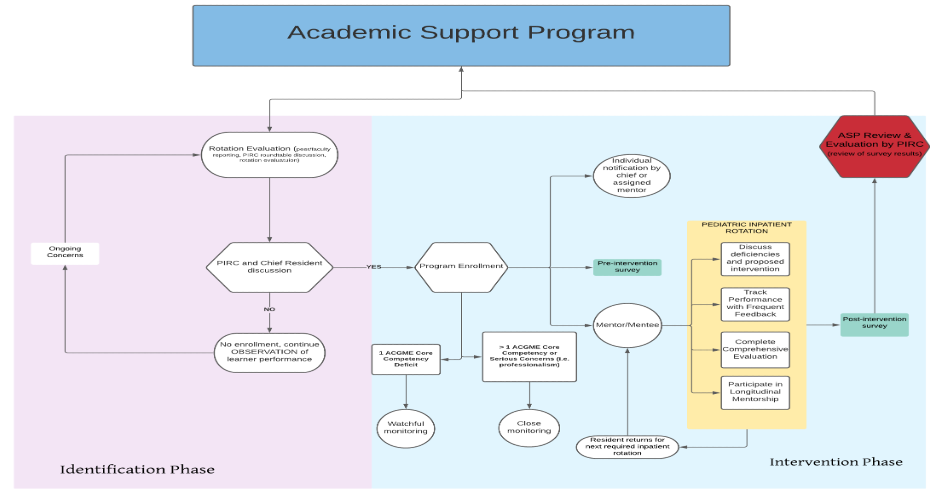Medical Education: Resident
Medical Education 13: Resident 4
473 - Academic Support Program (ASP): Building a Hybrid Model of Mentorship and Coaching for Underperforming Pediatric Residents within the Pediatric Inpatient Rotation
Publication Number: 473.421

Nikita G. Khetan, MD, FAAP (she/her/hers)
Assistant Professor, Pediatric Hospitalist
The University of Texas Health Science Center at Houston and McGovern Medical School
Houston, Texas, United States
Presenting Author(s)
Background: The ACGME created milestones to assess resident progression as most trainees struggle with some aspect of training such as medical knowledge, professionalism, work-life balance, and interpersonal stress. However, the ACGME does not provide, and current literature lacks, a uniform process to identify and remediate struggling residents. Without an appropriate structure, timely identification of learners is challenging resulting in delays with intervention.
Objective:
To identify struggling residents on the inpatient pediatrics rotation early, correct deficiencies, and avoid a true remediation process through mentorship and coaching.
Design/Methods:
All pediatric residents are eligible. Residents are enrolled based on an identification structure (Figure 1). Upon enrollment, a 1:1 faculty mentor is assigned.
Resident evaluations are reviewed to determine areas for targeted improvement and to objectively assess response to enrollment in the ASP. These evaluations are completed by both faculty and peers and are conducted monthly at the end of each inpatient floor rotation. They are scored on a 0-5 scale in milestones mirroring those of the ACGME including patient care, medical knowledge, systems-based practice, practice-based learning and improvement, professionalism, and interpersonal and communication skills. ACGME reviews are completed twice a year by the CCC using these and other rotation evaluations.
Enrolled residents also complete pre- and post-intervention surveys. The pre-survey focuses on perceptions and expectations. The post-survey, administered at the end of each cycle (cycle = academic year), examines resident satisfaction to aid in program improvement. The statistical analysis includes descriptive statistics.
Results: In our first cycle, we enrolled 3 residents. This cycle we have 6 enrolled residents. We have demonstrated a positive improvement in resident inpatient evaluations and ACGME reviews with an average increase of 0.5-1 level per milestone per resident across all competencies over both cycles. Another measure of our success is the resident feedback received. Residents’ comments have noted the ASP to be “helpful” and “comforting” with strengths centered on mentorship, feedback, availability and approachability of mentors, and opportunities for growth.
Conclusion(s): The ongoing interventions of the ASP to empower learners have generated positive responses from faculty, residents, and the program. Ultimately, we believe the ASP provides a solid framework for adoption by other programs and institutions to successfully support struggling residents.
